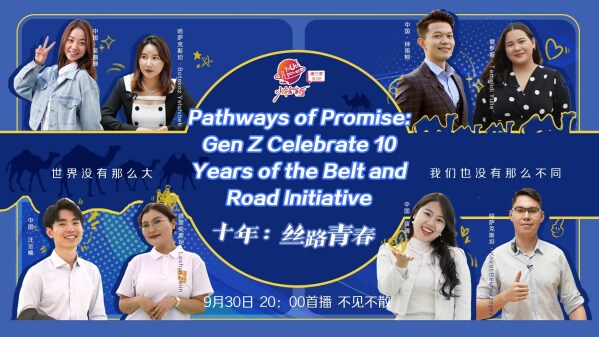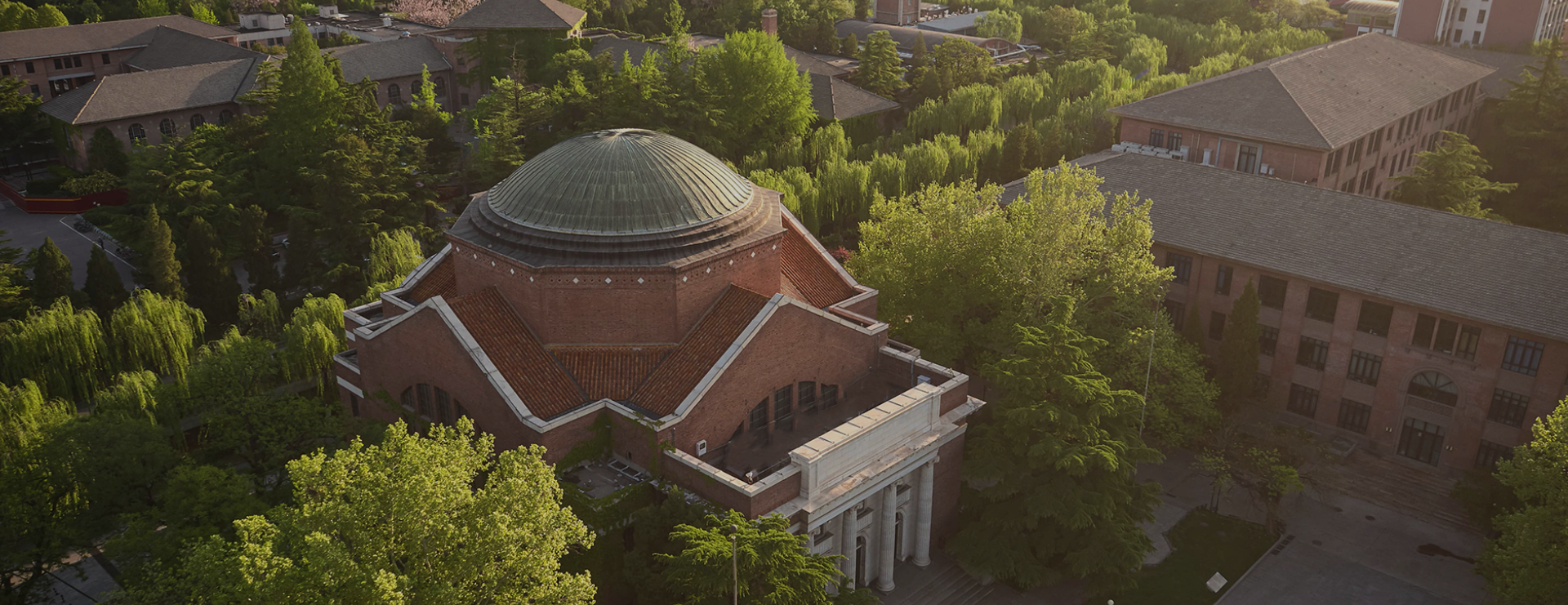
The fourth episode of season three of the China Daily series Youth Power, “Pathways of Promise: Gen Z Celebrate 10 Years of the Belt and Road Initiative”, was broadcast online on September 30.
Gen Zers from China, Kazakhstan and Russia gathered in the birthplace of the Belt and Road Initiative, Astana, capital of Kazakhstan, to review the initiative’s achievements over the past 10 years.
In 2013 during a visit to Nazarbayev University in Astana, President Xi Jinping proposal the Silk Road Economic Belt. Since then the Belt and Road Initiative has gone through a long journey of growth, Gen Zers in this episode of Youth Power talked about how they see the Belt and Road Initiative continuing to unfold.
Lashyn Zeiin, a Kazakh Gen Zer student at Nazarbayev University, said that in 2013 she visited China. “To me it was a breathtaking new world.” She then decided to continue learning Mandarin, Zeiin said.
Guests of the Youth Power episode said the Belt and Road Initiative is an international framework benefiting many countries, bringing abundant opportunities for economic development.
The host Zhong Yutong, a graduate of Fudan University in Shanghai and Cambridge University in England, said the initiative has injected new dynamism into a world suffering from unbalanced development and is a token of China shouldering more international responsibilities.
During the program there was discussion about how the initiative has promoted the “hard connectivity” of infrastructure and “soft connectivity” of rules and standards. Participants agreed that the initiative has improved lives and strengthened bonds between countries.
“We have an international center for cross-border cooperation,” said Kairat Bekmurzayev of Kazakhstan. “This is one of the projects of the Belt and Road Initiative. This center has helped my people to improve the quality of their lives.”
Temelidi Yulia, a Russian student at Tsinghua University in Beijing, said the inItiative has promoted cultural exchange among countries in fields such as literature, theatre, music and ballet. It has also encouraged countries to work with one another, she said.
A Chinese Gen Z guest, Wang Zongnan said the Belt and Road Initiative upholds the principles of good neighborliness and mutual respect and enhances the synergy of countries’ development strategies and mutual benefits.
Zhong Yutong said so-called China experts in the West have often questioned the Belt and Road Initiative. “Media in the West have connived to form a media matrix, smearing Chinese from different perspectives with the same rhetoric.”
Wang Zongnan, citing the example of how a Chinese livestreamer helped sell pine nuts from Afghanistan, said that the initiative has delivered benefits to many people.
Kairat said Western media have cast China and the initiative in a bad light because they see it as a threat to Western business.
Wu Shanshan, who studies at Duke Kunshan University in Suzhou, Jiangsu province, said that all countries should focus on the big picture rather than being preoccupied with narrow, domestic interests.
Xue Rui, a Chinese student pursuing a master’s degree at Al-Farabi Kazakh National University in Almaty, Kazakhstan, said that after her college entrance exam, seeing a joint declaration between China and Kazakhstan, she decided to study Kazakh. She has a blog and hopes to eventually be a journalist and contribute to building the Belt and Road Initiative, she said.
Botakoz Yelshibek, a Kazakh student studying at East China Normal University in Shanghai, said she promotes Kazakh culture on social media platforms and helps companies in Kazakhstan enter the Chinese market. Like Xue, she said her aim is to help build the Belt and Road Initiative.
Youth Power, organized by China Daily and first broadcast in June 2021, aims to build a global platform of communication and exchange, focusing on the interests and ideas of Generation Z. The program comes in the form of interviews, forums and speeches, with topics related to anything of current interest in the world.
Editor: Guo Lili

